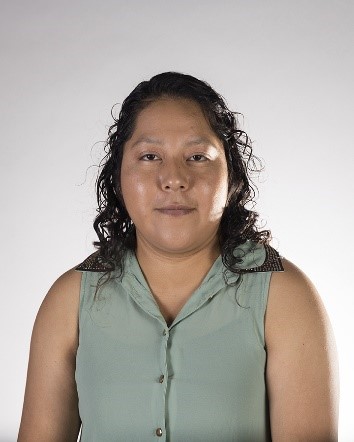Bullying Prevention and Intervention Tips from Dr. Sue’s Research Team
As National Bullying Prevention Month comes to a close, Dr. Sue’s Empowerment Initiative Research Team would like to give some helpful bullying prevention and intervention tips for parents and educators who are committed to creating a kinder and braver world for the children in their lives.
The Empowerment Initiative Research Team are a group of professors and graduate students at the University of Nebraska – Lincoln, whose research focuses on identifying and addressing the complex personal, social, and cultural factors underlying bullying behaviors, thereby advancing practical solutions to promote healthy relationships within families, schools and communities.

“We know that kindness and bravery are the keys to stopping bullying.”
Dr. Susan Swearer
As the co-director of the Bullying Research Network (http://brnet.unl.edu), we know many of the reasons why bullying occurs and how we can stop it. So, why is it so hard to actually stop bullying? Part of the reason is that human relationships are complex and bullying is a breakdown of these relationships. Underlying bullying behaviors might be feelings of fear, jealously, insecurity, anger, need for power, and revenge. What if we lived in a world where those emotions were replaced by happiness, sharing, security, and compassion? By focusing on fostering and developing kindness and bravery, we can create a kinder and braver world where bullying doesn’t exist.

“Create a positive school culture”
Ana Damme
School psychologists and school mental health professionals help educators foster positive relationships with youth and their families. Youth who feel like they belong and have a positive perspective of their school have better academic and social-emotional outcomes than youth who are not engaged in school.

“Have a clear definition of bullying”
Allen Garcia
In order to stop bullying, it is important that everyone know what bullying looks like. According to the Centers for Disease Control and Prevention, bullying is defined as intentional and unwanted aggressive behaviors that are repeated over time, or could be repeated in the future (as in cyberbullying) within a relationship where the bully perpetrator has more power than the target. This definition includes three criteria: negative intention, repetition, and power imbalance.
The behaviors in bullying are negative acts with the intent to cause psychological or physical harm. A power imbalance exists since the perpetrator has more power (e.g., older in age, physically larger, popular, smart) than the target and the targets have a difficult time defending themselves from the perpetrator. The repetition over time suggests that the bullying is pervasive and is not just an isolated incident. By having a clear understanding of the bullying definition, everyone can start identifying and stopping bullying once and for all!

“Appearance-based bullying is very real and sometimes goes under the radar – this needs to change!”
Sara Gonzalez
Differing from body image appearance ideals imposed by society, peers, family, or the community one identifies with increases individuals’ risk of psychological maladjustment. The importance associated with reaching those appearance ideals may be predictive of bullying victimization and negative mental health outcomes (i.e., depression, anxiety). Embracing a positive attitude toward your body and truly accepting who you are can be extremely powerful in reducing the harmful effects of appearance-based bullying. You were born this way!
“Do not identif y the child as the problem, the behavior is the problem that we want to change.”
y the child as the problem, the behavior is the problem that we want to change.”
Guadalupe Gutierrez
We make a big mistake when we label children as “bullies” or “victims.” First, these terms are nouns and imply that the behavior cannot be changed. In fact, we need to focus on changing the harmful behavior, not simply labeling the child and levying a punishment. When adults give children labels it is like giving them an identity, which is harder to change. If a child thinks, “I’m the bully,” then he or she might act that way. We want to make sure that youth understand that bullying isn’t okay AND it’s a behavior that can be changed. We want to help them be brave and have the courage to change.
 “Parents, if your child tells you they’re being bullied, listen.”
“Parents, if your child tells you they’re being bullied, listen.”
Dr. Meredith Martin
One of the most important things parents can do if they think their child is being victimized is to speak to them about it in an open, loving, and non-judgmental way. The negative impact of victimization can be lessened if youth feel like they can trust and speak openly with their parents. Encourage your child to share their experience and get as much information as you can. Validate their feelings and let them know that it’s not their fault. Then, help your child come up with proactive strategies to solve the problem. If bullying is occurring at school, you might contact a school official or counselor and work with them to support your child. Don’t tell your child to “just get over it,” to ignore it, or to retaliate with aggression. These strategies don’t work and may discourage your child from coming to you in the future.

“Recognize the fluidity of the roles in bullying situations”
Katie Mosher
When we think about bullying we often think about it in terms of three separate fixed roles (i.e., bullies, victims, and bystanders). However, most individuals move in and out of these roles over time. For example, a young person could be bullied in 6th grade and then could bully others in 7th grade. Bullying is a developmental process and it is even possible to be all three roles during the same time.

“Know how to protect your children from cyberbullying”
Zach Myers
Cyberbullying is a unique form of bullying that many youth and young adults can experience. Just like face-to-face bullying, such as physical and verbal bullying, cyberbullying negatively impacts all of the individuals involved. In addition, research has found that individuals who are victimized through cyberbullying are also likely being victimized in-person as well. However, there are steps that you can take if you are cyberbullied or read posts of others being cyberbullied. Unlike face-to-face bullying, cyberbullying leaves a trace, such as through posts, messages, and pictures/videos. It is important to save the evidence! Screenshot and save mean messages or posts before they are deleted. In addition, be aware of the functions various social media sites provide users. If you or someone else is cyberbullied, many sites allow you to report and remove harassing messages. Check your site’s privacy settings and account functions for more information. Lastly, just like traditional bullying, it is important that cyberbullying is reported to an adult. If you see or experience cyberbullying, it is important that you share this with your parents, teachers, and/or other trusted adults. For more information, please check out: www.hackharassment.com and www.facebook.com/help. There are resources to help stop cyberbullying and cyberharassment!

“Adult supervision can decrease incidents of bullying perpetration”
Alia Noetzel
Bullying often occurs when there is decreased adult supervision. Knowing this, increasing adult supervision in hallways or during recess time can decrease bulling behaviors. It is also important that individuals supervising during these times are able to recognize that bullying behaviors can be verbal, physical, relational, and electronic. Often, the forms of bullying co-occur, so adults need to be vigilant to this complexity in order to respond effectively and consistently.

“Foster an environment for your child/students where open conversation about bullying can happen”
Raul Palacios
Bullying perpetration appears differently across age, gender, and culture. Creating an environment where children/students can openly talk about bullying can help create a better understanding of what bullying is and what it isn’t. A great way to help increase students’ ability to take another perspective and to generate discussion, is through storytelling. The Empowerment Initiative website has an extensive list of books about bullying for children and adults (http://empowerment.unl.edu/resources/Books/). Discussions produced from stories can also enable children/students to generate their own positive interventions to address bullying situations that they may have seen or may encounter in the future.

“Recognize that there are multiple ways in which youth may be victimized, some more covert than others.”
Shir Palmon
Bullying is often thought of as the big, mean kid who takes smaller kids’ lunch money. However, bullying can also be verbal (i.e., saying mean things), social (i.e., excluding someone from a group), and cyber (i.e., posting mean things about someone online) in addition to the physical bullying that is more easily noticed (i.e., hitting or kicking someone).

“Not everyone reacts to being bullied in the same way”
Dr. Hideo Suzuki
Peer victimization is a threat to emotional well-being in children. We know that peer victimization can lead to the development of emotional problems, such as anxiety and depression, from preschool to adulthood. The risk for developing a depressive disorder occurs for both girls and boys before puberty; however after puberty, girls are at greater risk. Thus, peer victimization can influence the development of serious mental health problems, regardless of age and gender. Understanding that peer victimization is a developmental issue that differentially impacts boys and girls suggests that effective bullying prevention and intervention efforts must take into account developmental and gender differences.

“Bullying takes on many different forms”
Cody Solesbee
@codysolesbee
There is a misconception in the mainstream media that bullying only consists of acts of physical aggression as depicted in movies like A Christmas Story or relational aggression as depicted in movies like Mean Girls. In fact, bullying takes on many different forms, including verbal taunts and threats, social exclusion, humiliation, rumor spreading, electronic bullying, verbal and social bullying among gamers, and physical harm. We also know that students do not just engage in “one” form of bullying, rather, someone who bullies others will most likely use multiple forms.
Typically, adults rely on youth to report bullying, especially when the acts themselves occur in under-supervised areas. Thus, teachers, administrators, and other school personnel should work diligently to foster an environment of open and honest communication with students. Classrooms in which students are more willing to report bullying are characterized by less victimization and higher positive classroom climate. In addition, students are more likely to report bullying when they believe teachers will actively respond. School personnel are an important key to the prevention and intervention of bullying and these strategies should help foster a safer, kinder environment.
If you would like more information about bullying prevention and intervention, our researchers, and our research projects, please visit the Empowerment Initiative website at http://empowerment.unl.edu/. You can also follow the Empowerment Initiative on Facebook, Twitter and on Instagram.
I just returned from Mattel Headquarters in Los Angeles where Born This Way Foundation convened their first in-person Research Advisory Board meeting.
Our research advisory board members are a diverse group of Ph.D.-level researchers from across the United States and Canada. Not only did we spend the day talking about the Born Brave Experiences Research Projects and ways to translate research findings online and offline, we also got the chance to tour Mattel’s research facilities and to discuss opportunities for “real-time” research, designed to build a kinder and braver world.
At the heart of our conversations was a commitment to conduct research on how science can inform practice. We know that through studying children’s play we can learn about how to promote and support social-emotional skills—skills like emotion regulation and emotion expression that are vital for healthy development. Play is how children make sense of the world around them and providing positive messages through toys is important for scaffolding healthy development.
Not only am I a researcher, I am also a mother to two teenage daughters.
As a parent, it was very important for me that our daughters had access to toys with positive messages. Some of their favorites were the “American Girl” and “Monster High” characters. Monster High is a fictitious high school where everyone is accepted. I was particularly excited to get a sneak-peak at Zomby Gaga, Monster’s High’s latest character, who was designed by Lady Gaga’s sister, Natali.
Zomby Gaga’s message is about celebrating differences and promoting acceptance through kindness. She’s a great addition to Monster High, which is a place where students accept, embrace, and celebrate differences.
Our differences make us unique and if every school and place was like Monster High, then we wouldn’t have bullying, cruel, and mean behavior. Mattel, Monster High, and Born This Way Foundation are leading this translational research effort—through play we can build a kinder and braver world.
You can join our efforts by signing the #KindMonsters pledge and promising to practice compassion everyday. (And, of course, you can pre-order your own Zomby Gaga.)
In kindness and bravery,
Dr. Sue
¡Estamos muy contentos de presentarle la Fase III del Estudio de investigación de la Experiencia Born Brave (Nací Valiente) en español! We are pleased to present Phase III Study Research Experience Born Brave (born Valiente) in Spanish!
Nuestra fundacion, Born This Way Foundation, se ha comprometido a apoyar el bienestar de los jóvenes y darles los recursos para crear un mundo más amable y valiente. Con la ayuda de nuestro Research Advisory Board (gabinete de asesores de investigación) hemos creado esta encuesta en español que nos ayudará a obtener una influencia más amplia al público hispanohablante y de hecho expandir nuestro alcance a los jóvenes internacionalmente. Al llenar esta encuesta su voz, la voz de aproximadamente 39.9 millones de hispanohablantes en los EE.UU. y más de 400 millones en el mundo, nos permitirá crear maneras revolucionarias de cómo aumentar el acceso, y mejorar la salud mental, física y emocional de los jóvenes.
Los estudios están diseñados para identificar las condiciones que permiten a los jóvenes vivir una vida más agradable y para mejorar los servicios y recursos disponibles para ellos. La encuesta incluye una serie de preguntas que serán confidenciales y sólo usada para nuestros reportes de la investigación. Los resultados de la encuesta podrán brindar una ayuda inmensa para obtener mejor comprensión del funcionamiento psicológico y social de los jóvenes que participan en las experiencias de nuestra Fundación. Hemos reconocido la importancia y el impacto que esta investigación podría tener en el éxito de nuestros programas y los invitamos a participar.
Si usted está entre las edades de 13 y 18, haga clic aquí para tomar la encuesta.
Si usted está entre las edades de 19 y 25, haga clic aquí para tomar la encuesta.
Por favor comparta esta encuesta con todos sus amigos – queremos saber de usted!
Born This Way Foundation is committed to supporting the welfare of young people and give them the resources to create a more friendly and brave world. With the help of our Research Advisory Board we created this survey in Spanish to help us gain a broader understanding of our Spanish-speaking audiences and in fact, expand our reach to young people internationally. By completing this survey your voice, the voice of approximately 39.9 million Spanish speakers in the US and more than 400 million worldwide, will allow us to create groundbreaking ways to increase access, and improve the mental, physical and emotional health of young people.
The studies are designed to identify conditions that allow young people to live a more enjoyable life and to improve services and resources available to them. The survey includes a series of questions that will be kept confidential and only used for our research reports. The results of the survey will be immensely helpful for us to gain a better understanding of the psychological and social functioning of youth participating in the experiences of the Foundation. We have recognized the importance and the impact that this research could have on the success of our programs and invite you to participate.
If you are between the ages of 13 and 18, click here to take the survey.
If you are between the ages of 19 and 25, click here to take the survey.
Please share this poll with all your friends – we want to hear from you!
References:
“Most Widely Spoken Languages in the World.” One World Nations Online. N.p., n.d. Web. 28 July 2016.
“Your Geography Selections.” American FactFinder, United States Census Bureau. N.p., 2014. Web. 28 July 2016.

We all need support from others. Our Born Brave Experiences research and other studies have found that social support helps reduce feelings of isolation, depression, and anxiety. Individuals who experience social support from family, friends, and coworkers are happier. New research shows that this support is especially critical for people who may feel different, like transgender individuals.
Did you know LGBTQ individuals are nearly 3 times more likely to experience a mental health condition like depression? Past research has painted a disheartening picture when it comes to the mental and emotional health of transgender individuals. A study of young, transgender women showed they experienced far more mental health crises than their peers. But, it doesn’t have to be this way! By providing support and accepting people for who they really are, we can make the world a better place for everyone.
In fact, an exciting study was recently published in the journal Pediatrics that found that parental support can give trans children a huge boost. Researchers discovered that with early acceptance from parents, these trans children did not have higher levels of depression than their cisgender peers. It’s clear that embracing someone’s real identity can make a huge, positive difference in their life.
In our research here at Born This Way Foundation, we’ve found that social support is a vital important protective factor for everyone, particularly individuals who face discrimination. Unfortunately, many trans individuals face bigotry and harassment every day. We hope to end discrimination toward trans individuals by raising awareness and teaching everyone the value of embracing differences.
Our work on this important issue is just beginning. Your voice is critical to making this research a success and I hope you’ll participate. We’re learning so much from our Born Brave Experiences research and I would be honored if you would share your experiences with us by taking the Born Brave Experience Survey.
- If you’re between the age of 13 and 18, click here to take the survey.
- If you’re between the age of 19 and 25, click here to take the survey.
Thank you for helping us to create a kinder and braver world!!!!
In kindness and bravery,
Dr. Sue
Update: As of March 5, the English portion of our survey has closed but we are still looking for Spanish respondents.
¡Estamos entusiasmados por el lanzamiento de la Encuesta “Born Brave Experiences” versión 3.0 en español! El proyecto de investigación “Born Brave” guía la programación de la Fundación “Born This Way” y nos ayuda a comprender mejor sus vidas y experiencias. Utilizamos los resultados de nuestra investigación para apoyar nuestro trabajo construyendo un mundo más amable y más valiente. ¡Le agradecemos su participación!
Whether we’re at a concert stop in your community, speaking to young people in their schools about Hack Harassment or on the floor of Macy’s for the #LoveBravery launch, Born This Way Foundation values your voice and we want to hear from you. We’re excited to launch Phase III of the Born Brave Experiences Study and we are inviting you to participate.
The Born Brave Experiences Research is a series of studies focused on improving our understanding of the factors that influence youth engagement, mental health, and emotional wellbeing. Grounded in existing psychological research, the studies are designed to identify the conditions that empower young people to live their best lives and to improve the services and resources available to them online and offline. Working with partners around the country and with youth themselves, the research is used to promote kindness and bravery in schools, homes, and communities. Your survey responses will help us continue to build a transformative model of youth empowerment.
Phase III of the Born Brave Experiences Research will study:
- Revolutionary ways to increase access to and improve youth mental, physical, and emotional health;
- How to assess and increase personal kindness and bravery;
- Strategies to increase social emotional learning in classrooms and community agencies that focus on youth wellness;
- Mechanisms for better access to mental and emotional health resources for young people, by linking community mental health agencies (i.e., National Council for Behavioral Health); schools (i.e., National Association of School Psychologists); and university counseling centers (i.e., that will provide training opportunities across the United States).
Your voice is crucial to making this research a success and we hope you’ll chose to participate.
- If you’re between the age of 13 and 18, click here to Take the Survey.
- If you’re between the age of 19 and 25, click here to Take the Survey.
Be sure to share the survey with all your friends – we want to hear from you!
¡Estamos entusiasmados por el lanzamiento de la Encuesta “Born Brave Experiences” versión 3.0 en español! El proyecto de investigación “Born Brave” guía la programación de la Fundación “Born This Way” y nos ayuda a comprender mejor sus vidas y experiencias. Utilizamos los resultados de nuestra investigación para apoyar nuestro trabajo construyendo un mundo más amable y más valiente. ¡Le agradecemos su participación!
